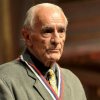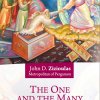In the fall of 2012, Mladen received support from the Humanities Center at Northeastern University to set up a research group to expand upon the study of the international sources of domestic political conflict and violence. Other topics of his academic interests are: civil-military relations, international security, the ideology of Yugoslavism, Balkan politics and trilateral relations between the US, EU and Russia.
Since 2010, Mladen has been actively involved in designing and leading the Dialogue of Civilizations program which introduces Northeastern students to the Western Balkans. In this Balkans Dialogue, students visit important institutions, sites, politicians and activists in the former Yugoslavia, and learn firsthand about ethno-nationalism, post-conflict reconstruction and EU accession. In addition to these activities, Mladen lectures on various aspects of conflict and politics in the post-Yugoslav space.
Mladen earned his LLB and MA in Security Studies from the University of Belgrade, Serbia. He is an alumnus of The Fund for American Studies and Georgetown University’s summer programs in Prague as well as in Washington D.C., where he also interned at the Institute of World Politics. He served in the Serbian Armed Forces’ Guard Brigade. In his spare time Mladen is passionate about his hobbies: genealogy, eating ice cream, basketball and literature. A New England aficionado, Mladen has embraced the charms of Nantucket, apple crisp and resenting New Yorkers.
Source: Northeastern University





